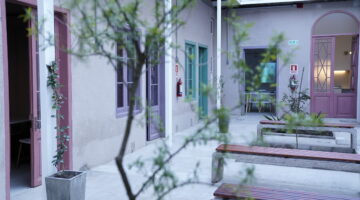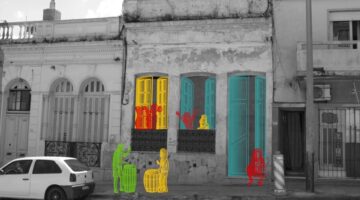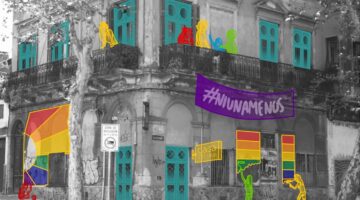


“Fincas” project in Montevideo
Main objectives of the project
Montevideo has initiated a project leveraging existing legal mechanisms to reclaim abandoned private urban land, with the aim of repurposing it for specific social needs through new housing and habitat initiatives. Upon reclamation, the municipality integrates the land into Montevideo's "Cartera de Tierras," a well-established city-land portfolio system spanning over twenty-five years. This mechanism streamlines residents' access to land for the development of social and cooperative housing endeavors.
Date
- 2019: Implementation
Stakeholders
- Promotor: Montevideo municipality
- Asociación Civil Plaza Uno
- Federación Uruguaya de Cooperativas de Vivienda por Ayuda Mutua
- Facultad de Arquitectura, Diseño y Urbanismo
Location
Country/Region: Montevideo, Uruguay
Description
The downtown of Montevideo was in decline. Due to urban sprawl, the city center has struggled to retain its population. Moreover, new economic activities such as tourism threatens the neighbours, causing gentrification. So, on the one hand, the downtown presented many deprived and vacant housing units and, on the other, new activities threats to the existing communities. To avoid depopulation and make an innovative urban renewal, “Fincas” was set in motion in 2019.
The main feature of the plan is recovering the abandoned buildings of the city center. To do so, they made a change in municipal rules. Many of those buildings had unpaid fines and taxes to the cityhall. Then, should the debt be over 80% of the assessed value of the lot, the owner can settle the debt by giving the lot to the municipality. Other tools, such as expropriation, has also been used. Thanks to all of it, more than twenty buildings are included in the “Cartera de Tierras”, a portfolio of public land.
The range of projects executed under the framework of Fincas exhibits notable diversity, benefiting from collaborations with both national ministries and local civil society organizations. Various initiatives within housing and habitat development have been prioritized, including the establishment of "temporary shelters" for vulnerable demographics like homeless women with children or individuals awaiting social housing allocation. Additionally, several housing plots have been repurposed to provide social rental accommodations.
Further endeavors, such as the implementation of the "dispersed cooperative" model, have played a pivotal role in fostering alternative cooperative housing arrangements and safeguarding residents in areas susceptible to intense speculative pressures. This model entails a distributed form of co-living, wherein separate real estate units are managed cooperatively by residents who form a scheme to utilize different buildings and shared spaces. This grassroots approach has contributed to revitalizing downtown Montevideo. Moreover, Fincas has supported projects with community and recreational objectives, such as "Casa Trans," which advocates for the rights of transgender individuals and gives a community center dedicated to the trans community.
A distinctive aspect of Fincas as an urban renewal initiative lies in its focus on land use legislation and the pursuit of "re-densification" in Montevideo—a strategy aimed at transforming the city into a more densely populated urban center. By repurposing central urban locations for social purposes and returning them to residents, Fincas strives to counteract abandonment and gentrification in certain districts. This effort reduces both physical and symbolic disparities between central and peripheral areas, fostering a more cohesive city and advancing the concept of the right to the city.

